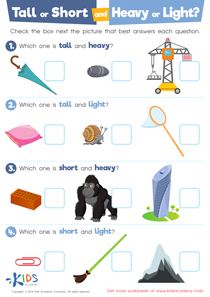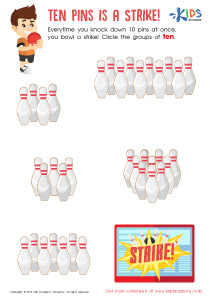Sorting skills Easy Kindergarten Math Worksheets
5 filtered results
-
From - To
Enhance your child's learning experience with our "Sorting Skills Easy Kindergarten Math Worksheets." These worksheets are meticulously designed to help young learners develop critical sorting and categorizing skills. Filled with engaging activities and adorable illustrations, children will learn to identify, organize, and differentiate various objects based on size, shape, color, and more. Perfect for reinforcing essential math concepts while making learning fun and interactive, our easy-to-use worksheets provide a solid foundation for future math success. Available for instant download, these resources ensure your child can practice sorting skills anytime, anywhere. Transform sorting into an exciting adventure today!
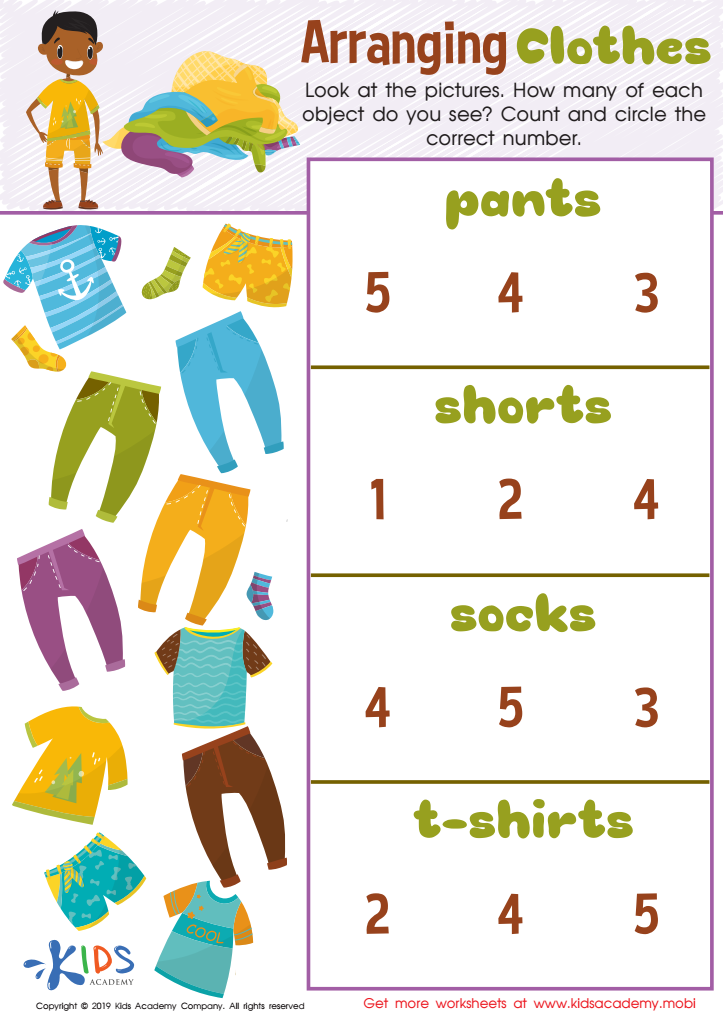

Arranging Clothes Worksheet
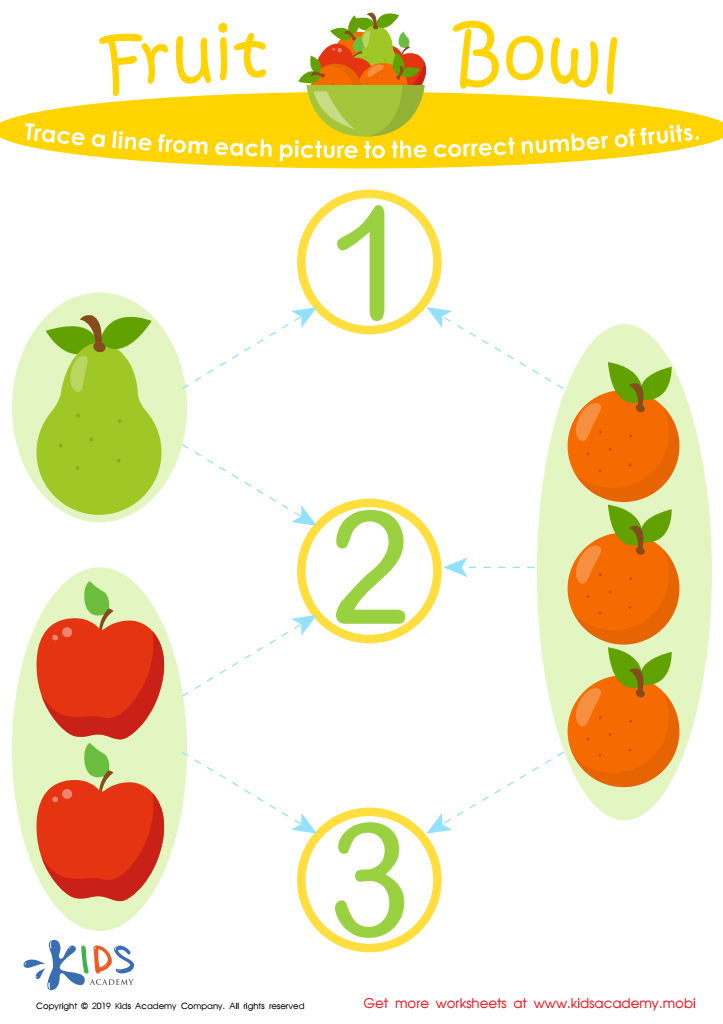

Fruit Bowl Worksheet
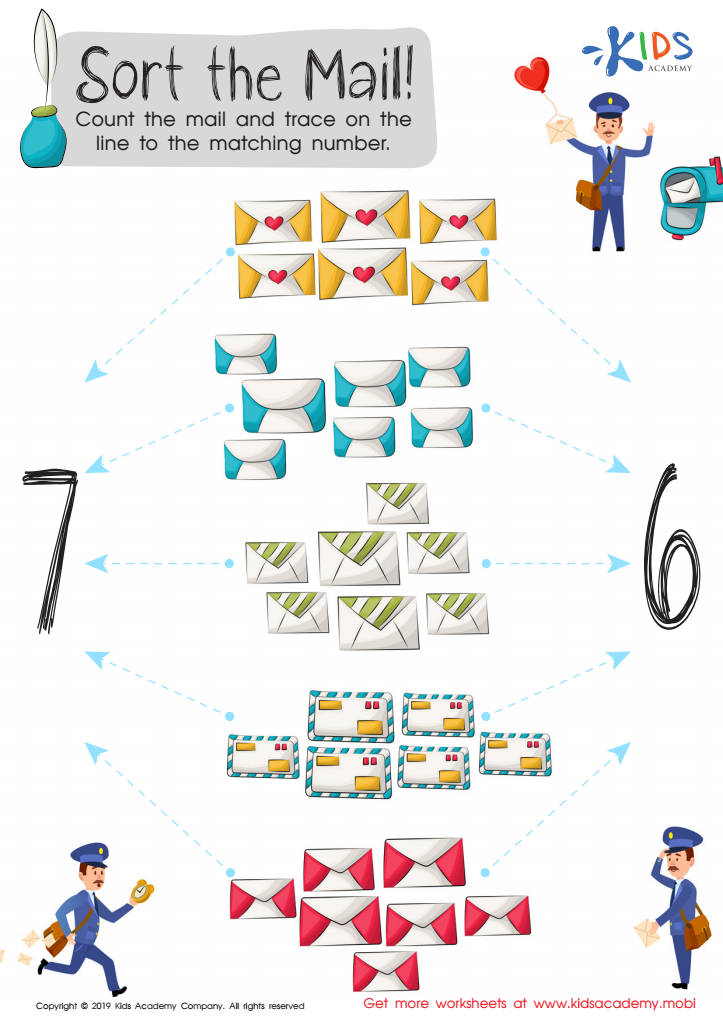

Sort the Mail Worksheet
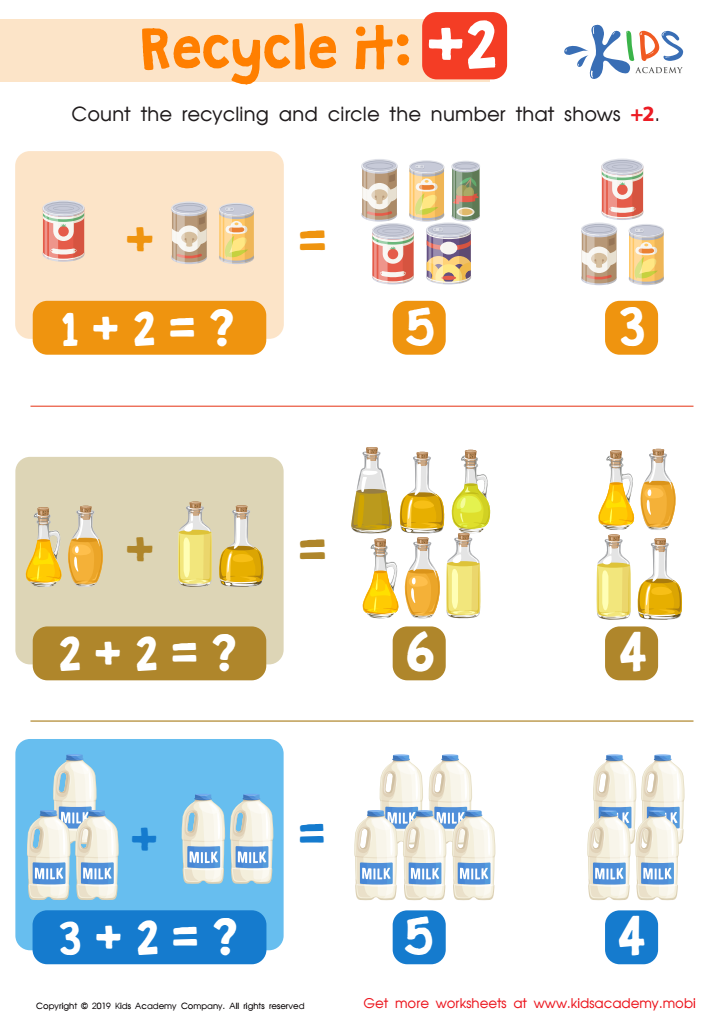

Recycle It: +2 Worksheet
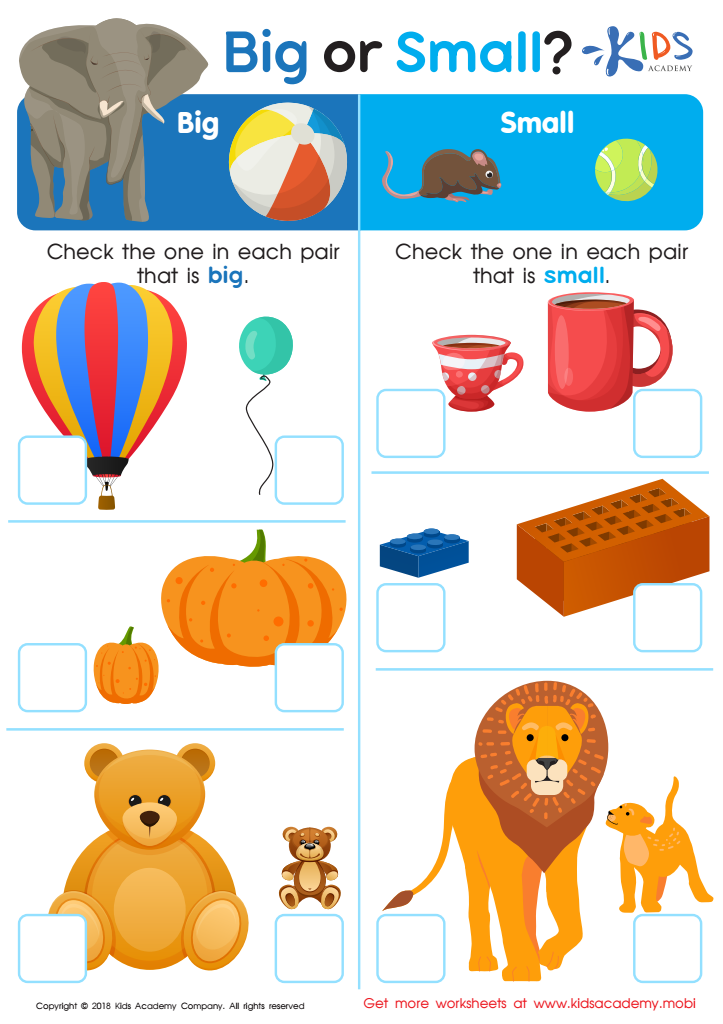

Big or Small? Worksheet
Sorting skills are foundational to a child's mathematical development and carry broad implications for their overall cognitive growth. By teaching kindergarten students to sort objects, parents and teachers help them understand key concepts such as classification, organization, pattern recognition, and critical thinking. These are essential skills that form the basis of more complex mathematical operations they will encounter later in their education, such as addition, subtraction, geometry, and data analysis.
Sorting enhances observation skills, allowing children to notice similarities and differences among items. This encourages attention to detail and promotes a methodical, analytical mindset. Additionally, sorting activities can be a child’s first introduction to abstract thinking and reasoning, as they decide criteria for grouping objects, such as color, size, shape, or function. Understanding these categories makes it easier for children to grasp numbers, measurement, and other mathematical relationships.
Moreover, developing sorting skills fosters language and communication abilities. As children explain their sorting choices, they improve their vocabulary and reasoning skills and learn to articulate their thought processes. Social-emotional skills are also honed through collaborative sorting activities, enhancing abilities like cooperation, sharing, and following rules. Thus, nurturing sorting skills in early education supports well-rounded development, laying a strong foundation for future academic success.
 Assign to My Students
Assign to My Students












